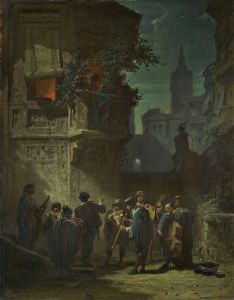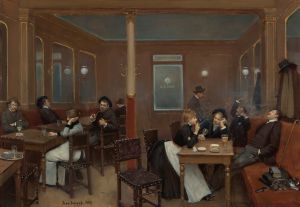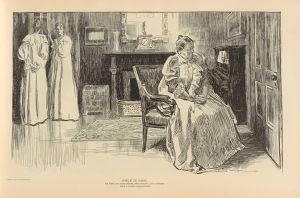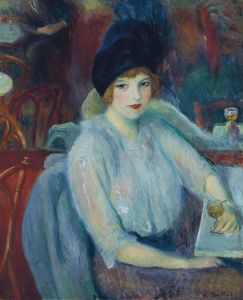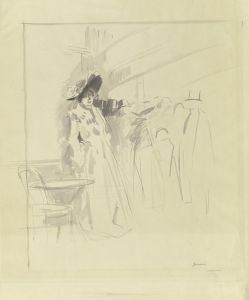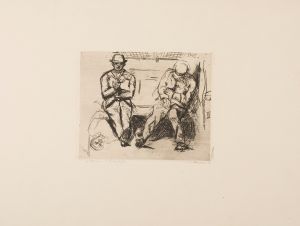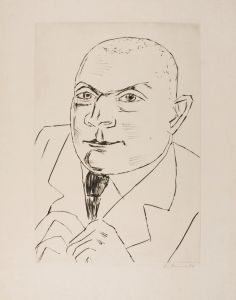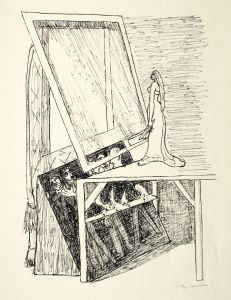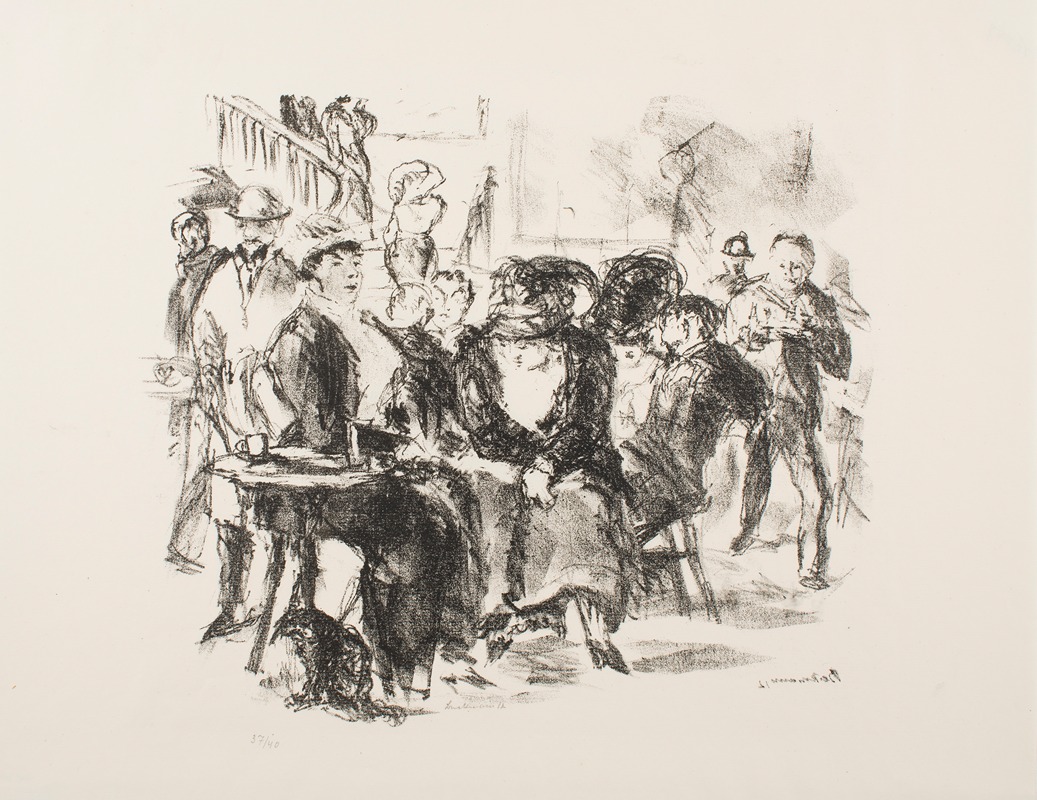
Admiralscafé
A hand-painted replica of Max Beckmann’s masterpiece Admiralscafé, meticulously crafted by professional artists to capture the true essence of the original. Each piece is created with museum-quality canvas and rare mineral pigments, carefully painted by experienced artists with delicate brushstrokes and rich, layered colors to perfectly recreate the texture of the original artwork. Unlike machine-printed reproductions, this hand-painted version brings the painting to life, infused with the artist’s emotions and skill in every stroke. Whether for personal collection or home decoration, it instantly elevates the artistic atmosphere of any space.
Max Beckmann's "Admiralscafé" is a notable painting created in 1942. Beckmann, a German painter, draftsman, printmaker, sculptor, and writer, is widely regarded as one of the most important artists of the 20th century. His work is often associated with the New Objectivity movement, which emerged in Germany in the aftermath of World War I as a reaction against expressionism.
"Admiralscafé" was painted during a tumultuous period in Beckmann's life. In 1937, the Nazi regime in Germany labeled his work as "degenerate art," leading to the removal of his paintings from German museums and his subsequent self-imposed exile. Beckmann fled to Amsterdam, where he lived in relative isolation and financial difficulty. Despite these challenges, he continued to produce significant works, including "Admiralscafé."
The painting depicts an interior scene of a café, characterized by Beckmann's distinctive use of bold lines, vibrant colors, and complex compositions. The figures in the painting are rendered with a sense of psychological depth and intensity, reflecting the artist's interest in exploring the human condition. The café setting, a recurring motif in Beckmann's work, serves as a microcosm of society, where various characters and narratives intersect.
In "Admiralscafé," Beckmann employs a compressed and fragmented space, a technique that creates a sense of tension and unease. The figures appear to be engaged in various activities, yet there is an underlying sense of disconnection and alienation. This reflects the broader themes of Beckmann's work, which often grapple with the existential crises and moral ambiguities of the modern world.
The painting is also notable for its rich symbolism. Beckmann frequently incorporated symbolic elements into his work, drawing on a wide range of sources, including mythology, literature, and contemporary events. In "Admiralscafé," the presence of military figures and the café's name itself may allude to the broader context of World War II and the pervasive influence of militarism and conflict on everyday life.
"Admiralscafé" is housed in the Saint Louis Art Museum, which holds an extensive collection of Beckmann's works. The museum's acquisition of the painting underscores Beckmann's enduring legacy and the continued relevance of his work in the context of 20th-century art history.
Max Beckmann's "Admiralscafé" remains a powerful testament to the artist's ability to capture the complexities of human experience through his distinctive visual language. The painting's intricate composition, psychological depth, and rich symbolism make it a significant work within Beckmann's oeuvre and a valuable piece for understanding the broader themes and concerns of his art.





